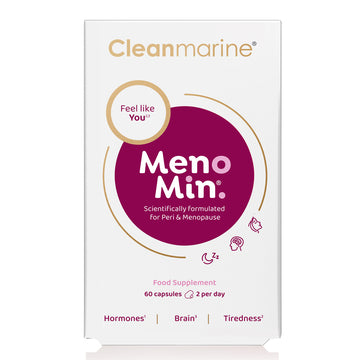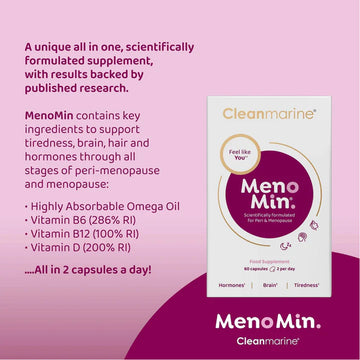One of the main symptoms we hear about whenever menopause is discussed is hot flushes. They don’t happen for everyone but for the women who do experience them, they’re uncomfortable, unpleasant, and sometimes embarrassing.
So, what is a hot flush?
It’s a feeling of intense heat that comes from inside your body. They can happen suddenly, or you might feel them building up. As well as the heat you may feel your heart racing a little, tingling in your fingers, your face may go red, and you may experience sweating. You might also experience them at night in bed which can really interfere with your rest.
It’s thought that hot flushes are a reaction to the hormonal fluctuations in your body and, although there’s no one trigger or reason for them to happen, tracking yours and making some small changes might help your symptoms. Common triggers can include alcohol, caffeine, spicy foods, stress, tight clothes, smoking (or being in a smoky environment) and being in a hot room. Some women find that keeping a diary of what has happened around their hot flushes can shed some light on their own particular triggers. You may not be able to stop them happening completely, but you might be able to reduce their frequency by doing this.
If you are suffering from hot flushes, there are some things you can do to get some relief.
- Keep ice water on hand and sip it at the start of a hot flush.
- Dress in layers, even if it’s cold outside. Hot flushes aren’t weather dependent so the last thing you want to do is be caught wearing a wool jumper you can’t take off.
- If you’re getting them at night wear cotton pyjamas and make sure your sheets are cotton. Breathable fabrics are much better at keeping us cool.
- Bring a cool pack to bed with you too, to help lower your temperature and get you back to sleep.
Lifestyle changes may help to reduce the longevity of your hot flashes too.
- Eating a well-balanced diet with controlled portion sizes and stay away from spicy or other trigger foods.
- Get regular exercise, while it’s often said – it’s for good reason as it genuinely does help your body in so many ways; and can help to release endorphins which lift your mood.
- Try to control your stress. Yoga, meditation, and time to decompress can all help to lessen the symptoms.
- Speak to your healthcare professional if you are finding it difficult to cope with hot flushes or other symptoms. They will be able to offer you advice on lifestyle changes, supplements and medical options that may help you.
Remember that perimenopause and menopause are completely natural, and it shouldn’t be something that you are embarrassed to talk about. There is lots of advice and help available to ease your journey and make this new phase of life something to be celebrated.
Looking for more menopause information? Then read our blog 'Our guide to the best Menopause supplements'.















